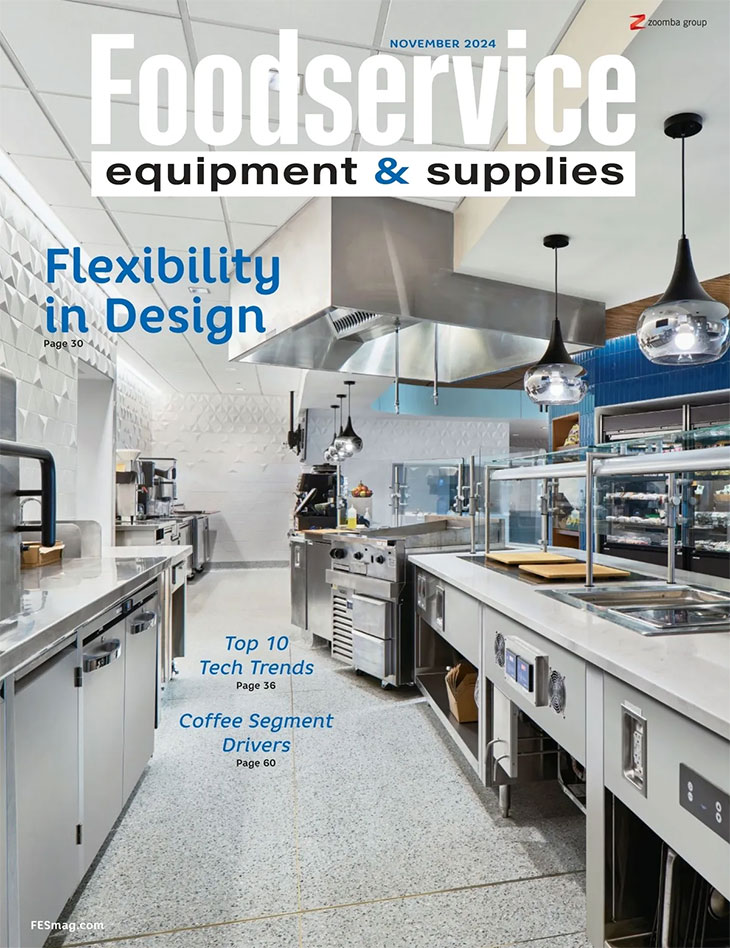Because some municipalities have regulations regarding the use of disposers or prohibit their use altogether, foodservice operators should first check with local zoning or municipal boards to ensure they can use these units in their businesses. Some local requirements may impact the units an operator can specify including ordinances that dictate the use of grease traps or interceptors.
Sanitation and Safety Guides
Hand sinks should be readily accessible and very visible. Local health codes govern the specific number of hand sinks necessary in the back-of-house.
Foodservice operators typically install disposers in dish tables and pot/pan sinks as well as in vegetable prep, salad prep and meat prep areas. This equipment helps reduce trash hauling costs by minimizing the amount of food tossed in the trash and reducing staff trips to the dumpster.
Thermometers are required in commercial foodservice operations to track temperatures over a period of time in accordance with HACCP guidelines. The main goal is to cook, hold and serve food at safe and proper temperatures.
Key safety components of almost any commercial kitchen, ventilation equipment includes hoods, fire systems, pollution control units, grease extraction devices, controls, exhaust and makeup air systems.
Generally speaking, thermometers require little to no service.



















